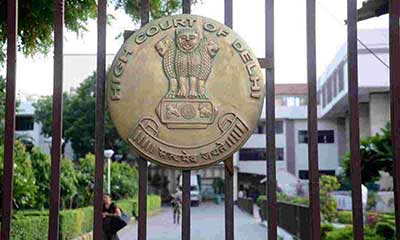Date: 27/02/2023
Relevance: GS-2: Indian Constitution - historical underpinnings, evolution, features, amendments, significant provisions and basic structure.
Key Phrases: Supreme Court, Constitution, Rights, Liberty, Information Technology Act, Data Protection Bill, Parliamentary Joint Committee, K.S.Puttaswamy Vs Union of India.
Context:
- Delhi High Court is scheduled to consider a doctor's request for the implementation of his 'Right to be Forgotten.’
- The doctor's plea entails the deletion of news stories and other incriminating materials pertaining to his "wrongful detention" in response to a "fabricated FIR lodged against him” which he claims is causing detriment to his life and personal liberty.
About the Case:
- The case of "Dr. Ishwarprasad Gilda vs. Union of India & Others"
involves a well-known doctor who has contributed significantly to the fight
against HIV-AIDS.
- He was charged with several offenses under the Indian Penal Code, such as causing death by negligence (Section 304A), cheating (Section 417), and personating a public servant (Section 170).
- The petitioner argues that he was wrongly arrested, after the
death of one of his patients and was subsequently released on bail.
- He reiterated that he was exonerated in a trial court order, and there was no evidence of his involvement in any wrongdoing.
- As a result, the doctor filed a petition with the Delhi High
Court requesting to remove any "irrelevant" news content that is causing
"significant harm" to his reputation and dignity.
- Or to issue any other order or directive to protect his dignity, including exercising his "Right to be Forgotten."
About Right to be Forgotten:
- The “Right to be Forgotten” is the right to remove or erase
content so that it’s not accessible to the public at large.
- It empowers an individual to have information in the form of news, video, or photographs deleted from internet records so it doesn’t show up through search engines, for instance google.
- Section 43A of the Information Technology Act, 2000 says that organizations that possess sensitive personal data and fail to maintain appropriate security to safeguard such data are liable to pay damages to the affected party.
- While, the IT Rules, 2021 do not include this right, they however, lay down the procedure for filing complaints with the designated Grievance Officer so as to have content exposing personal information about a complainant removed from the internet.
- In December, 2019, the Ministry of Electronics and Information
Technology presented the Personal Data Protection Bill in the Lok Sabha.
- The parliamentary joint committee has recommended changes to 81 of the 99 sections of the bill.
- One of the provisions in Chapter V of the draft bill, known as Clause 20, outlines the "Rights of Data Principal," including the "Right to be Forgotten."
- This right empowers individuals to restrict or prevent the ongoing disclosure of their personal data by a "data fiduciary."
Origins of The Right:
- The Right to be Forgotten originates from the 2014 European Court of Justice ruling in the case of “Google Spain SL, Google Inc v Agencia Española de Protección de Datos, Mario Costeja González”.
- It was codified there for the first time following a Spanish man’s quest to make the world forget a 1998 advertisement saying “his home was being repossessed to pay off debts.”
- Thereafter, it was included in the EU’s General Data Protection
Regulation (GDPR) in addition to the right to erasure.
- Article 17 of the GDPR provides for the right to erasure and lays down certain conditions when such a right can be restricted.
Conclusion:
- In “Jorawer Singh Mundy vs Union of India”, an American citizen
approached the Delhi High Court in 2021 seeking the removal of all publicly
available records of a case as he was not able to get a job despite being
acquitted by trial court.
- Thus, the court directed respondents like ‘IndianKanoon’ to remove the same.
- While the right is not recognized by a law or a statute in India expressly, the courts have repeatedly held it to be endemic to an individual’s Right to Privacy under Article 21 since the Apex Court’s 2017 ruling in “K.S.Puttaswamy vs Union of India”.
- However, the court also recognized that “Right to be Forgotten"
can be limited by the right to freedom of expression and information for
the compliance with legal obligations or for tasks in the public interest.
- The right can be restricted on the grounds of public interest in public health, scientific or historical research purposes, or statistical purposes or for the establishment” and “exercise or defense of legal claims”.
Source: The Indian Express
Mains Question:
Q. What is the Right to be Forgotten? Also mention the law on the Right to be Forgotten in India? (150 words).







